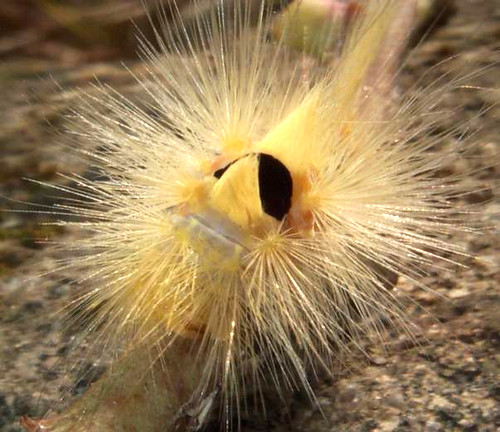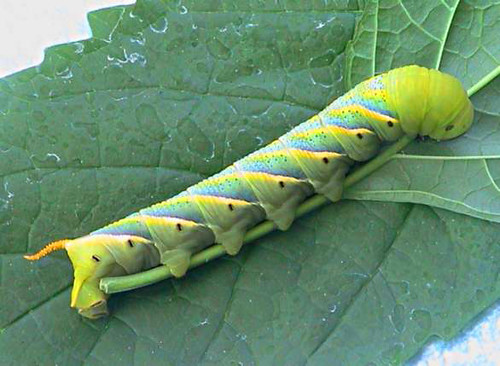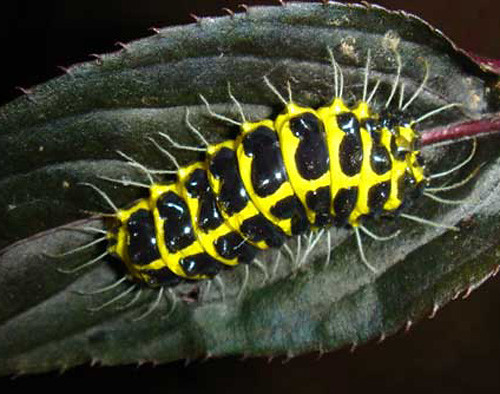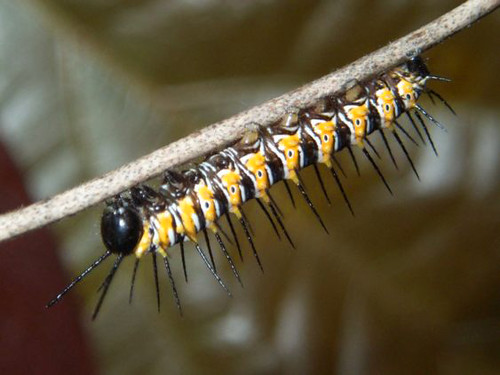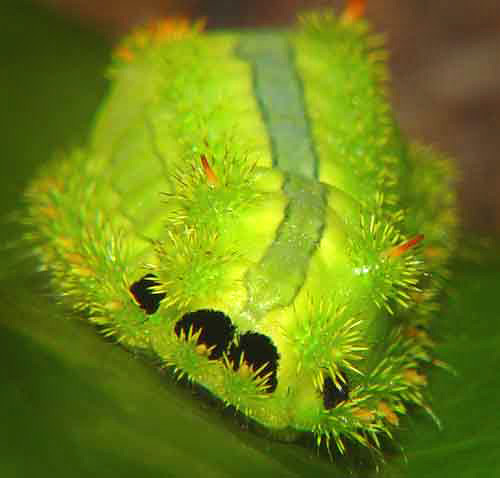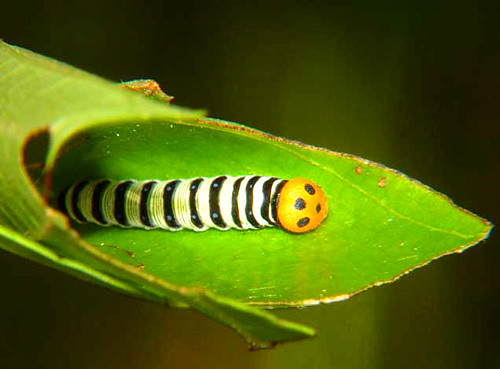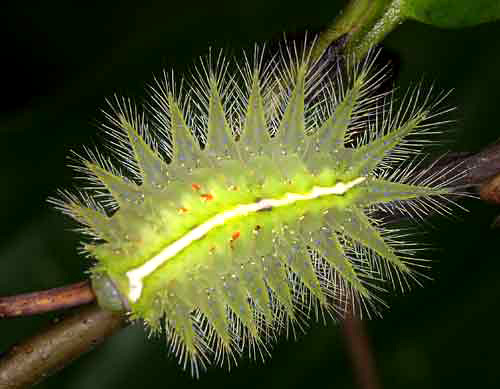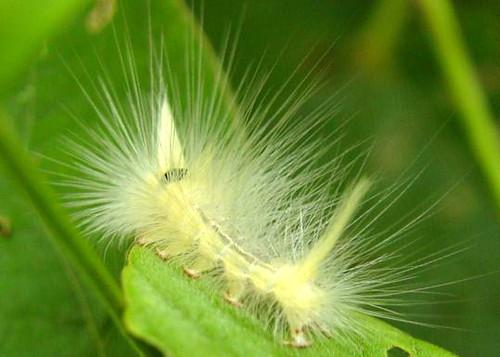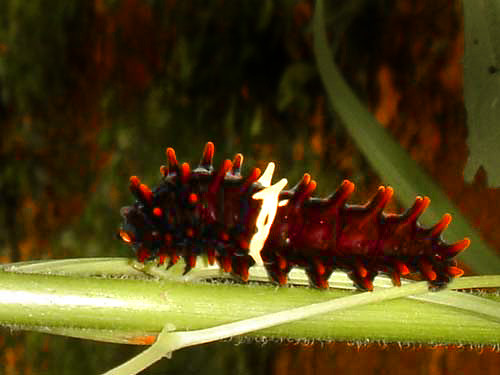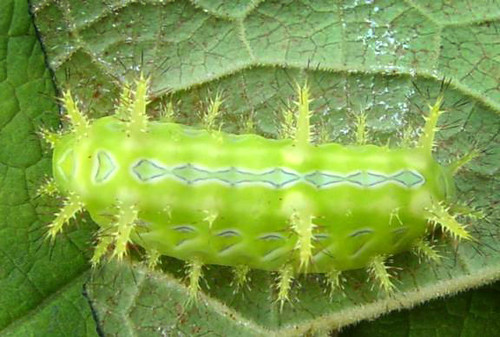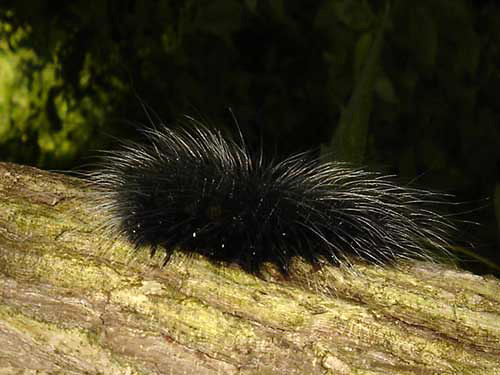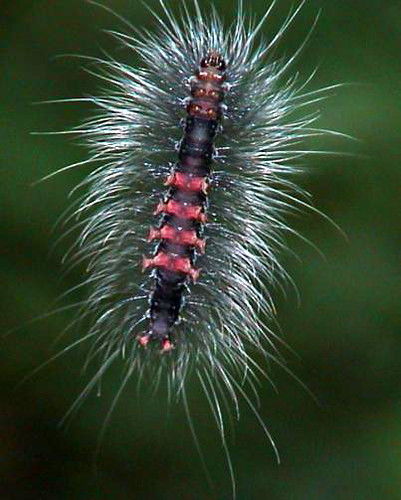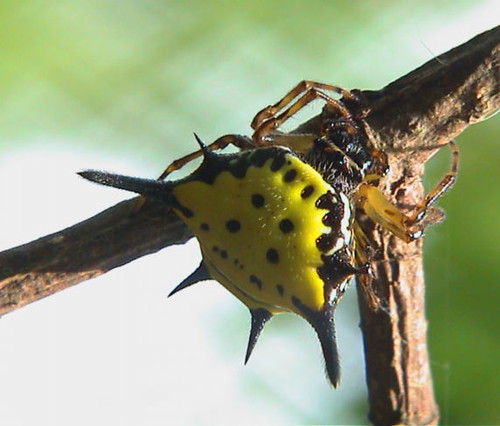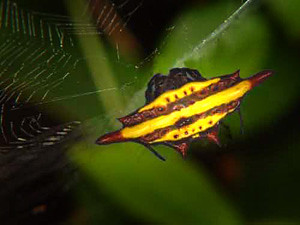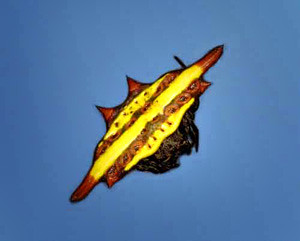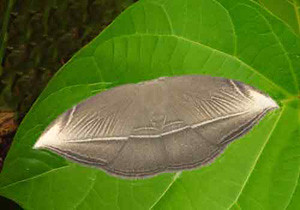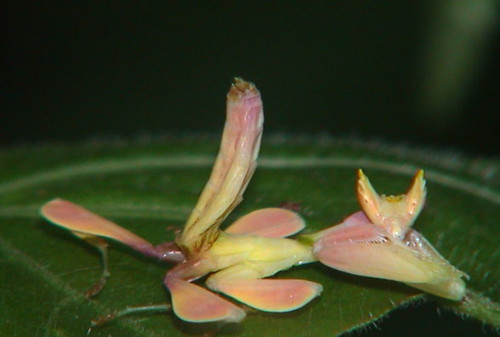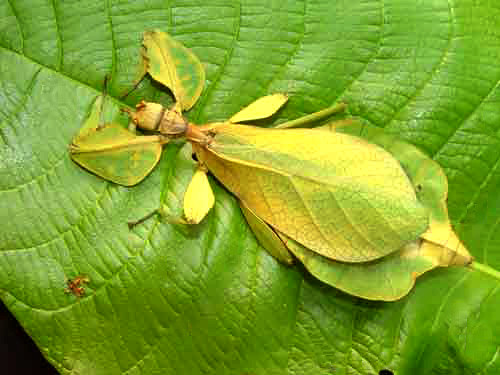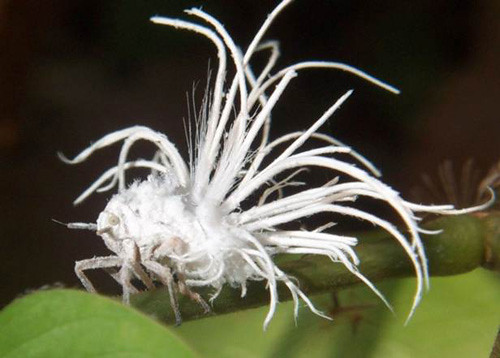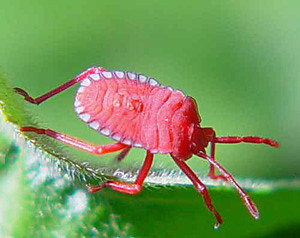John Moore loves taking pictures of insects, and it helps that he lives in the entomologist’ dream location: in Chiang Mai, Northern Thailand. Its forests are teeming with exotic bug varieties, and it will take a lifetime to properly explore them. He started looking for insects in January 2000, and since then had accumulated quite an insect family snapshot album, of which these are only a few examples. Let’s start with caterpillars; some of a cuddly, furry, “big-eyed” variety, others a bit more dangerous.
Some of the caterpillars shown: Limacodidae, Brahmaea hearseyi, Achelura (Zygaenidae), Nymphalidae, Calliteara horsfeldii
Amazing Caterpillar Fact:
Faecal Firing: Some leaf-rolling caterpillars fire faecal pellets from their anuses… be careful out there.
Faecal Firing: Some leaf-rolling caterpillars fire faecal pellets from their anuses… be careful out there.
Spiny spiders (Gasteracantha sp.) are only 4-10mm. in size but build strong vertical webs:
Some spiny spiders look like flying saucers:
This is not a feather, this is a moth:
Microblepsis leucosticta
Microblepsis leucosticta
Mimicry in mantids
John Moore writes: “These tiny flower mantids really do look like small flowers. I found them by a stream in a forest clearing. They are all are young Hymenopus coronatus.”
This one looks like a leaf - Phyllium celebicum female
This page gives some interesting facts about mantids:
- Eats only live prey, or at least prey that is moving, and hence, appears alive
- Often begins to undulate and sway just before striking its prey. Possibly to mimic the movement of surrounding foliage, but it could be that this behavior aids in the visualization process.
- How do Mantid’s Mate and Reproduce? In many cases female eats the male.
(which serves as a source of protein for the female and her young) By the way, the male willing offers himself to be eaten.
(which serves as a source of protein for the female and her young) By the way, the male willing offers himself to be eaten.
- After the female deposits the eggs, she dies sometime after her final birthing.
Other fascinating bugs:
Flatidae nymph: also a local delicacy
Flatidae nymph: also a local delicacy
Tessaratomidae nymphs which arrive at the beginning of the rainy season. They are another local delicacy.
Must be an acquired taste…
See more insect photography at Thaibugs.com/
See more insect photography at Thaibugs.com/

